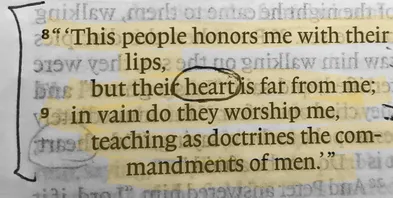
everyday theology
The gospel, our anchor

Michael Reeves
For people of the gospel, the gospel serves as our mooring anchor. An anchor stops a ship from drifting while allowing it a certain amount of movement on the surface of the water. Just so, the gospel holds us to Scripture’s matters of first importance while allowing some slack for differences of opinion on other matters.
As Paul called the Romans and Corinthians to unity in the gospel and liberty in what to eat, so the anchor keeps us from making shipwreck of our faith (1 Tim. 1v19) without making our every disagreement a cause for schism.

Holiness rooted in the heart

Michael Reeves
The difference between an evangelical and a non-evangelical understanding of holiness can be seen well in a difference between the 17th-century Puritans and their contemporaries, the high-church Caroline Divines. Perhaps the most influential of the Carolines was William Laud (1573–1645), Charles I’s Archbishop of Canterbury.
Laud loved what he called “the beauty of holiness”, by which he meant liturgical orderliness. He strictly insisted that the clergy must follow all the rubrics of the Church of England’s prayer book, and was deeply concerned with clergy attire and the maintenance of church buildings and their physical beauty. And it was a particular sort of building he preferred: despising the Reformation – or “Deformation,” as he called it – he preferred new churches to be built in the pre-Reformation, Gothic style, with an architectural emphasis on an altar instead of a Communion table. For, he said, “the altar is the greatest place of God’s residence upon earth, greater than the pulpit; for there ’tis Hoc est corpus meum, This is my body; but in the other it is at most but Hoc est verbum meum, This is my word.”

everyday theology
Finding true friendship

Michael Reeves
I wonder if you’ve read C. S. Lewis’ The Four Loves? If you haven’t, you’ve got a treat to enjoy sometime. His chapter on friendship is a favourite of mine. It’s an insight-packed paean to friendship. And friendship is a vital part of our life together in Christ, a foretaste of what is to come.
A friendship is not the same thing as an exclusive coterie or cabal. “True Friendship,” says Lewis, “is the least jealous of loves. Two friends delight to be joined by a third, and three by a fourth, if only the newcomer is qualified to become a real friend.” The foundation for friendship, Lewis says, is companionship, which is what we often mean by the term “fellowship”. Companionship entails a basic willingness to get on and work well with others.